When the drugs police slapped the handcuffs on him in Naples last month, Anthony de Avila was wearing the colors of America de Cali, the Colombian club where he became a star.
The former international’s arrest and conviction in Italy should be shocking, but it is just the latest chapter in an old and sordid romance between soccer and drug trafficking in Colombia.
Nicknamed “Pitufo,” Spanish for “Smurf,” because he is just 1.54m tall, De Avila was a class act on the field, playing 54 times for Colombia.
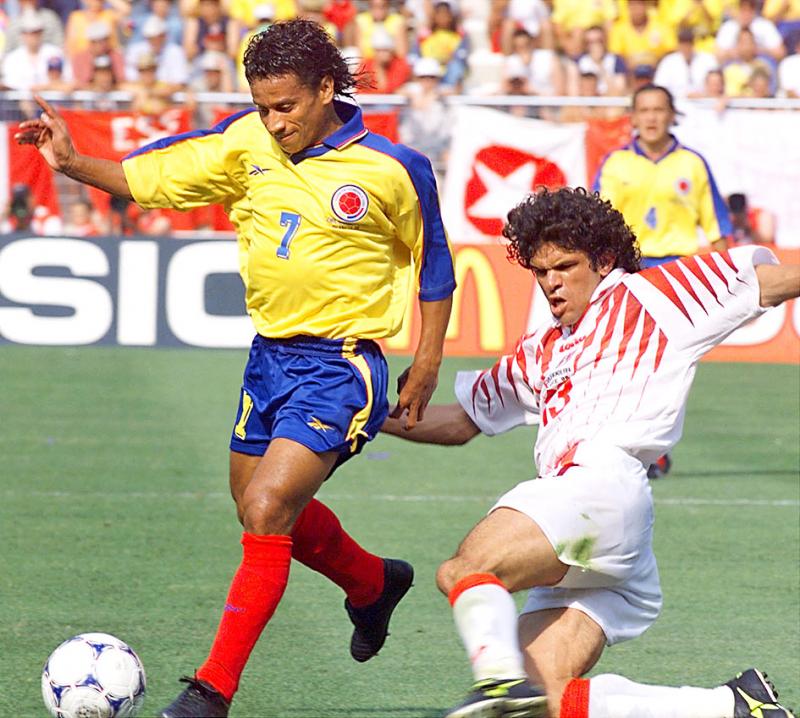
Photo: AFP
He spent most of his club career at America and remains the club’s all-time top scorer with 208 goals.
However, he was arrested on Sept. 20 in a piazza in the center of Naples in a scarlet club shirt.
“The police had been alerted with information indicating the presence in the city of South Americans who had come to meet local traffickers,” said Davide della Cioppa, the police officer who coordinated the arrest.
“He claimed to be a tourist, but when asked where he was staying, he replied that he was staying at the [subway] station,” which aroused the suspicions of the uniformed officers, Della Cioppa said.
After taking him to a police station, Italian authorities discovered that De Avila, 58, had been sentenced to prison in 2004 for drug trafficking.
The former striker “claims he is innocent and did not know he was convicted and wanted,” Fabrizio de Maio, his lawyer, told El Pais, a newspaper based in Cali, Colombia.
Yet the lawyer knows that his client is in a tight corner and that avoiding a 12-year prison sentence amounts to “mission impossible.”
“We are finding out what Anthony’s situation is like at the moment to see how we can help him,” Tulio Gomez, America’s main shareholder, told El Pais.
In Colombia, the profits from the illegal trade on cocaine have penetrated soccer, the equestrian world, beauty pageants and election campaigns.
In the 1980s and 1990s, owning a team “was an asset” for some capos and a tool of popularity for others, said journalist Ignacio Gomez, coauthor of the book Los Amos del Juego (The Masters of the Game). “It was a natural laundry” for a business that moves large sums of cash.
America de Cali was included in 1999 in a US list of companies connected to drug trafficking.
Another Colombian international Jhon Viafara, a midfielder in the Once Caldas team who won the Copa Libertadores in 2004, is serving 135 months in prison in the US for drug trafficking.
Viafara was accused of being part of an international network linked to the Clan del Golfo, the country’s largest drug gang.
In the 1980s, brothers Miguel and Gilberto Rodriguez Orejuela headed the Cali Cartel, which was linked to America de Cali. They were captured in 1995 and convicted in the US for drug trafficking.
The Cali Cartel became the world’s leading cocaine distributor after the 1993 death of rival Pablo Escobar, the kingpin of the Medellin Cartel — and backer of Atletico Nacional.
Both teams acquired “a significant collection of players,” Gomez said.
In 1997, two years after the Cali drug lords had been captured, De Avila acknowledged his debt to them.
“I want to dedicate this victory to some people who are deprived of their freedom,” De Avila said after scoring the goal that gave Colombia a 1-0 victory over Ecuador that all but cemented their France 1998 World Cup qualification.
“I think there is no need to name names, but with much love and humility I dedicate it to them, Gilberto and Miguel,” De Avila added.
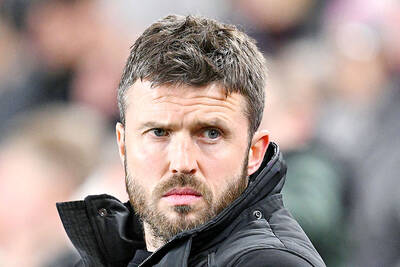
Manchester United on Tuesday confirmed Michael Carrick as interim manager until the end of the season, tasking him with leading the Red Devils back into the UEFA Champions League. “Having the responsibility to lead Manchester United is an honor,” said Carrick, 44, who won 12 major trophies in his 12-year playing career at United. The former midfielder previously had an unbeaten three-game stint as caretaker boss at Old Trafford in 2021. Carrick then took on his first permanent managerial role at second-tier Middlesbrough in October 2022 and was sacked in June last year after the club finished 10th in the
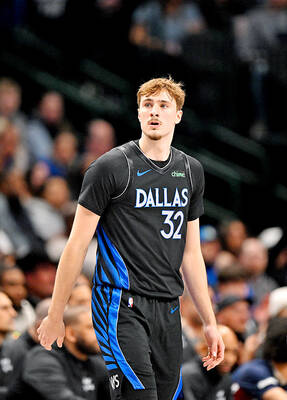
Dallas Mavericks rookie Cooper Flagg on Wednesday was ruled out for the second half of their 118-109 loss to the Denver Nuggets after the No. 1 pick sprained his left ankle in the first half. Flagg was called for a foul while defending against Peyton Watson and turned the ankle as he fell to the floor with 6 minutes, 1 second left in the second quarter. Flagg limped to the bench and continued to the locker room, but returned for the final 2 minutes, 35 seconds before the break. The 19-year-old did not come out for the second half before the announcement that
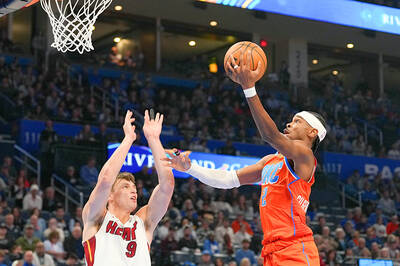
Reigning NBA Most Valuable Player Shai Gilgeous-Alexander on Sunday sparked defending champions Oklahoma City to victory, while Anthony Edwards led Minnesota’s last-minute fightback to beat San Antonio. Gilgeous-Alexander scored 29 points while adding eight assists and five rebounds in the Thunder’s 124-112 home victory over Miami, improving the NBA’s best record to 33-7 after outscoring the Heat 70-53 in the second half. “We locked in defensively. We were finally able to get some stops,” Thunder guard Aaron Wiggins said. “We were able to get out in transition a little bit, get going offensively and find the flow.” Jalen Williams scored 18 points, while
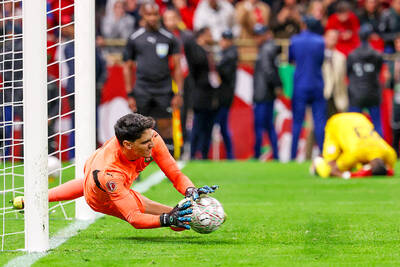
Yassine Bounou on Wednesday saved two penalties, while Youssef en-Nesyri netted the decisive spot-kick as hosts Morocco secured a 4-2 shoot-out victory over Nigeria following a 0-0 draw in a tense Africa Cup of Nations semi-final in Rabat. Morocco, seeking their first continental title in 50 years, are to face 2021 winners Senegal in Sunday’s decider in Rabat, while Nigeria take on Egypt in the third-place playoff tomorrow. The 120 minutes before the shoot-out had few clear-cut chances for either side, but it was Morocco who created more opportunities, although they were denied by some fine saves from Nigeria goalkeeper Stanley Nwabali. Nigeria